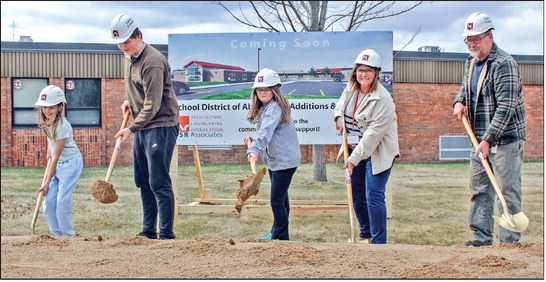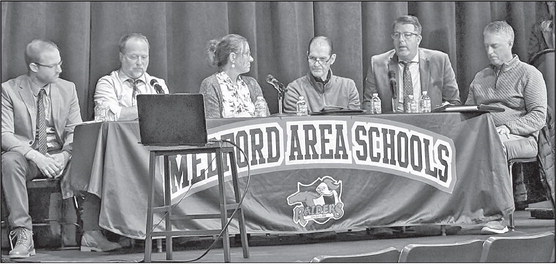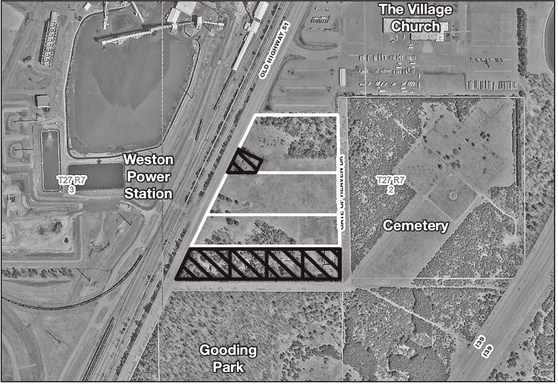Wheel tax comes under renewed scrutiny


By Kevin O’Brien
Efforts to eliminate Marathon County’s $25 vehicle registration fee, also known as a “wheel tax,” picked up new momentum recently, as about a third of the county board voted last week to remove the nearly $3 million in fee revenue from next year’s budget.
The amendment offered by supervisor Deb Hoppa failed on a vote of 13-24, but many supervisors expressed a desire to get rid of the wheel tax in the near future. If Hoppa’s amendment had been adopted, the ordinance that established the wheel tax in 2016 would remain in place and the county would still collect the $25 registration fee, according to corporation counsel Michael Puener.
In order to repeal the wheel tax, Puerner said the county is required by state law to inform the Wisconsin Department of Transportation 90 days ahead of time. At that point, he said the county board could pass a budget amendment dealing with the loss of revenue.
At the Nov. 7 Infrastructure Committee meeting, a question about getting rid of the wheel tax opened up a larger conversation about how the county pays for road maintenance and whether the Highway Department has too much money in reserves.
Supervisor Chris Dickinson, vice-chair of the committee, started the discussion by questioning why the county has not reviewed its $25 vehicle registration fee on a yearly basis, as was originally intended when it was first implemented in 2016.
“Once you get something in place like this, it just kind of stays there,” he said, noting that county supervisors eight years ago were hoping for increases in state aid that never really materialized.
The wheel tax generates about $3 million annually for road resurfacing, but due to inflation, Dickinson said the county is getting less work done with that money every year. At the same time, the Highway Department’s reserve fund has grown to about $56 million, which makes Dickinson question if the county is overtaxing residents.
County administrator Lance Leonhard called it a “great discussion to have,” especially for the state’s largest county geographically, with twice the average number of roads to maintain. The county board has consistently said it wants to a keep its highways at a score of seven on the 10-point scale called the Pavement Surface Evaluation and Rating.
As the cost of resurfacing and reconstructing roads has risen dramatically over the past few decades, Leonhard said the debate has been whether to collect more money upfront from taxpayers and vehicle owners or to borrow money and pay it back over time.
At the time the wheel tax was imposed – first as a one-year measure and then as a permanent fee – Leonhard said it was determined to be “the least crappy” way to generate extra funds for road maintenance because the cost for collecting it was less than what the county would have to pay in interest.
However, he noted that the number of new vehicles being registered in Marathon County is not increasing much over time, so the wheel tax revenue is essentially flat, as is transportation aid from the state.
Supervisor Tom Seubert, who was on the board when the wheel tax was approved, said he likes the idea of a “user fee” that every vehicle owner pays equally, although he also pointed out that there are a lot of exemptions for various types of vehicles. If there’s truly extra money in the reserve fund, he said he would rather use it to lower property taxes than eliminate the vehicle registration fee.
When it comes to the large amount of money in reserves, Leonhard said a good portion of the $56 million is “working capital” – cash on hand to pay contractors and vendors for ongoing projects. Leonhard also noted that the county has been talking for years about building a new Highway headquarters to replace the one on the corner of West Street and 17th Avenue in Wausau. The estimated cost for a new facility is nearly $60 million.
“You don’t have enough in reserves to pay for a new highway shop and to maintain roads,” he told supervisors. At the same time, if the county wants to reduce the amount of money it needs to borrow for the new Highway shop, Leonhard said at least some of the reserves could be used for that purpose.
Leonhard acknowledged that the county needs to do a better of explaining to the public why the reserve fund has $56 million in it, and what that money is intended for.
Highway commissioner Jim Griesbach said the total value of the county’s highways, bridges and culverts is $175 million, but the value of that infrastructure is depreciating rapidly, so he’s always thinking about how much is needed to replace or rebuild. That’s especially true given the likelihood of a major storm washing out multiple roads, bridges and culverts, which has happened in the past.
“It will happen again,” he said. “I urge you to consider what we need to keep the system up and running.”
In the case of an emergency declaration, state and federal money would be available to rebuild, but Griesbach said the county will still have to shoulder some of that burden. Griesbach said the county has done very well under the Bipartisan Infrastructure Bill passed in the wake of the pandemic, but those projects still require a 20 percent match.
Dickinson said he’s looking at the situation from the perspective of taxpayers, who are continually asked to pay more in property taxes every year while the county accumulates money in what could be called a “slush fund,” a term that Leonhard disputed.
Dickinson emphasized that he’s not suggesting that the Highway Department is spending unnecessarily, though he does question the amount of taxes levied.
“This is one of the things that government does well,” he said. “This is one of the things we have to do, just like the sheriff’s department.”
A Dec. 5 joint meeting between Infrastructure and Human Resources, Finance and Capital (HRFC) will feature a presentation by finance director Sam Fenzke on the purpose of reserve funds.
Chris Dickinson
Jim Griesbach




